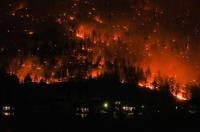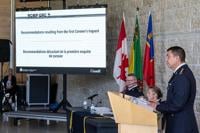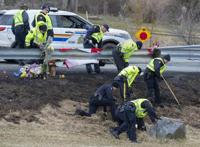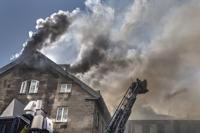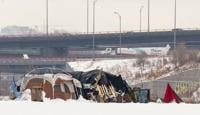OTTAWA - Canada's record-setting wildfire season is spurring the federal government to consider how to tackle future fires, floods or earthquakes.
Minister for Emergency Preparedness Harjit Sajjan said Thursday that could mean a more national approach to disaster response, as the government announced $65 million in federal funding for wildfire response in six provinces and territories.
"We're looking at all different types of disasters, doing the lessons learned and we'll come out with the appropriate response," Sajjan said at a news conference that included several other federal cabinet ministers and MPs.
"I would say all options are currently on the table, but we don't have an answer for you yet," said the minister responding to a question about Canada forming a national force to battle wildfires.
"We're looking at wildfires, yes, but we also need to look at floods. We also need to be ready for potential earthquakes."
Firefighting is largely a provincial responsibility but provinces have requested federal help from the ºÚÁϳԹÏÍø Armed Forces and elsewhere this wildfire season. They also put out the call to thousands of international firefighters from countries including the United States, Australia, South Africa, Brazil and Mexico.
The latest federal government forecast said Canada's already unprecedented 2023 wildfire season could continue late into the fall or winter.
Energy and Natural Resources Minister Jonathan Wilkinson said there is potential for increased wildland fire activity from eastern Alberta through to central Ontario at least until the end of this month, while fires in B.C. and the Northwest Territories will continue to smoulder.
"Indeed, despite the arrival of cooler night temperatures and decreases in lightning activity in the fall, ongoing warm and dry weather may contribute to new fire starts, and their remains a likelihood that some existing fires may continue to be active through September and possibly later into autumn or even winter," Wilkinson said.
He announced $65 million in federal funding for wildfire equipment and other supports for British Columbia, Alberta, Saskatchewan, Nova Scotia, Yukon and the Northwest Territories.
B.C. and the Northwest Territories have signed deals to receive their full allotments under Ottawa's wildfire and equipment fund, amounting to $28.5 million for the territory and $32 million for B.C. over five years, Wilkinson said.
The federal government's Fighting and Managing Wildfires in a Changing Climate fund will provide $256 million to provinces and territories through to 2027, he said.
The six provinces and territories are the first to get funding under the program, which will add resources and people to fight wildfires, Wilkinson said.
He said the "big picture" facing Canada is that wildfires are becoming more frequent and intense.
"The science is clear, the root cause of this is climate change," Wilkinson said.
Sajjan said climate change has been having a significant impact across Canada, and preparing for more natural disasters is necessary.
"I've been talking to various community leaders, mayors in B.C. and across the country when it comes to emergency preparedness," he said. "We will be talking to many other countries on how their system works, whether it's systems in the U.S., U.K. (or) Japan."
Wilkinson said the Natural Resources Canada fund will allow provinces and territories to cost-share investments for training and equipment, including vehicles, mobile units and new technology.
This report by ºÚÁϳԹÏÍø was first published Sept. 7, 2023.


